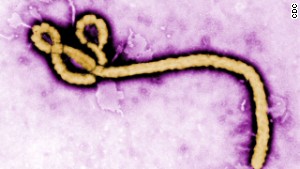 (CNN) -- Two American missionary workers infected with the deadly Ebola virus were given an experimental drug that seems to have saved their lives.
(CNN) -- Two American missionary workers infected with the deadly Ebola virus were given an experimental drug that seems to have saved their lives.
Dr. Kent Brantly was
given the medication, ZMapp, shortly after telling his doctors he
thought he would die, according to a source familiar with his case.
Within an hour, doctors say his symptoms -- labored breathing and a
widespread rash -- dramatically improved. Nancy Writebol, another
missionary working with Samaritan's Purse, received two doses of the
medication and has also shown significant improvement, sources say.



